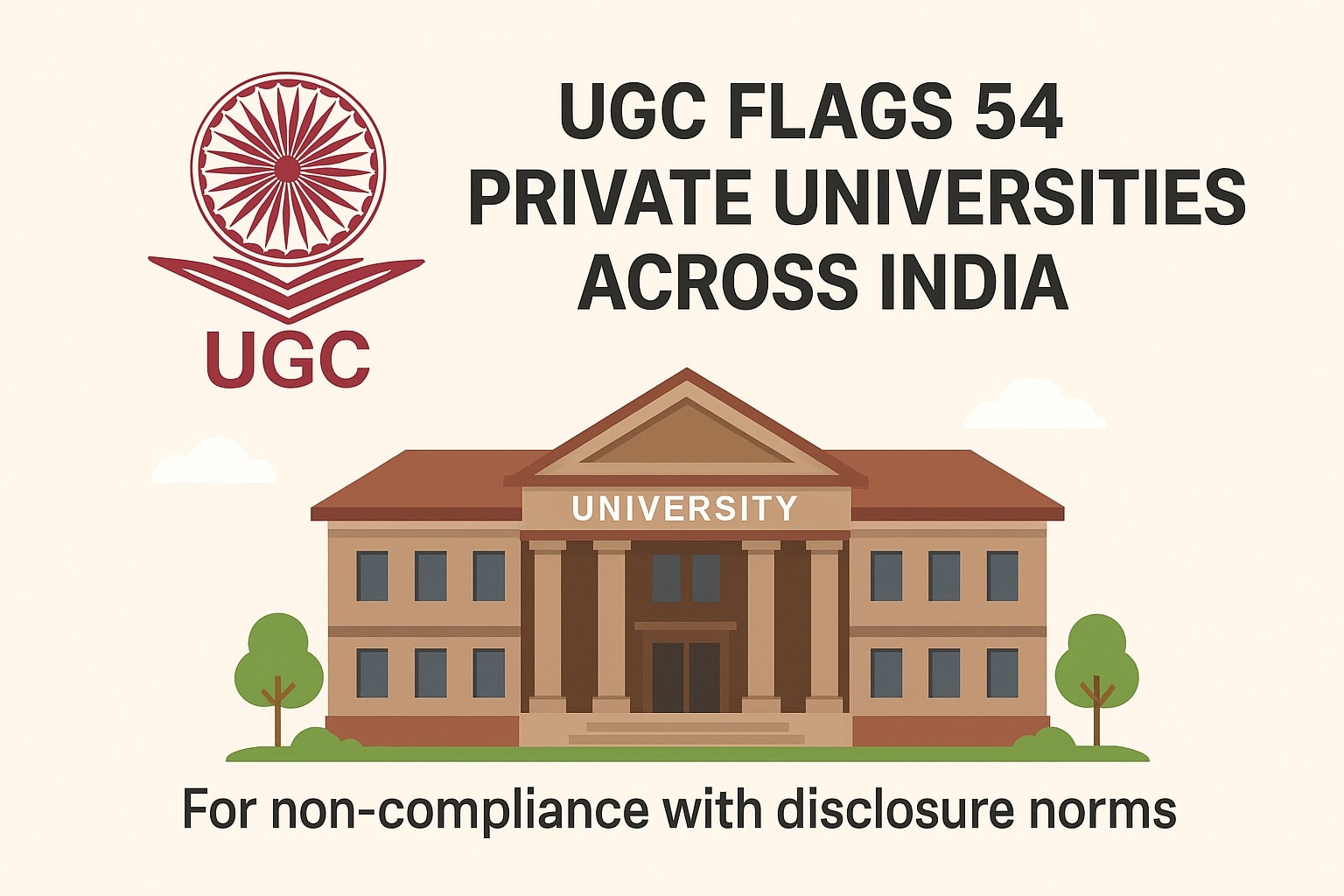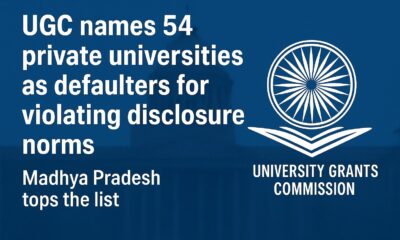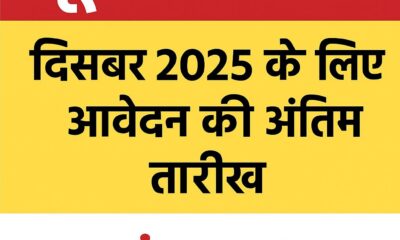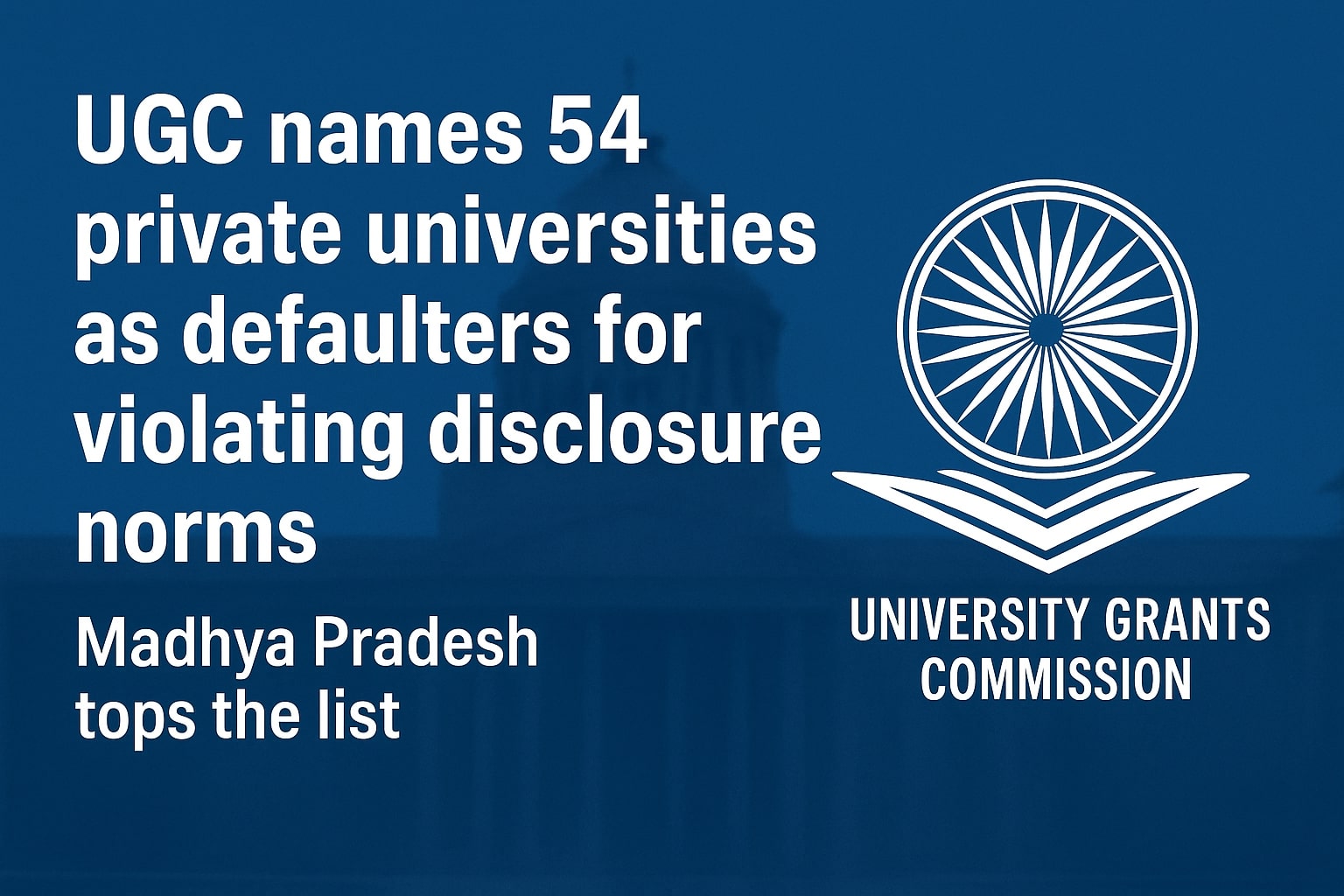The University Grants Commission (UGC) has declared 54 state private universities across India as defaulters for failing to comply with mandatory disclosure norms under Section 13 of the UGC Act, 1956. According to the Commission, these universities did not submit essential institutional details or failed to upload mandatory self-disclosure information on their official websites, despite repeated reminders and communications from the UGC.
The UGC mandates that all universities must maintain a functional and transparent website containing details such as faculty information, course structure, governance, accreditation status, and financial transparency. These details should be accessible from the homepage without requiring any login or password. The regulator found that 54 institutions had not followed these requirements, thereby violating public disclosure norms meant to ensure transparency and accountability in higher education.
Among the states, Madhya Pradesh topped the list with ten defaulter universities, followed by Gujarat with eight, Sikkim with five, and Uttarakhand with four. Other states like Bihar, Jharkhand, Maharashtra, and Uttar Pradesh also featured prominently in the list. The Commission has directed these institutions to take corrective measures immediately, warning that failure to comply could invite further regulatory action, including inspections or withdrawal of recognition.
Major Universities Named in the Defaulters List
Some of the prominent institutions included in the list are Amity University (Patna and Jharkhand), Azim Premji University (Bhopal), Dr. D.Y. Patil Dnyan Prasad University (Pune), and Alard University (Maharashtra). Others include Krishnaguru Adhyatmik Vishwavidyalaya (Assam), Maharishi University of Management and Technology (Chhattisgarh), Bir Tikendrajit University (Manipur), and TeamLease Skills University (Gujarat).
In Madhya Pradesh, the ten defaulting institutions include Azim Premji University, Aryavart University, Dr. Preeti Global University, Gyanveer University, J.N.C.T. Professional University, LNCT Vidyapeeth University, Mahakaushal University, Maharishi Mahesh Yogi Vedic Vishwavidyalaya, Mansarovar Global University, and Shubham University.
In Gujarat, the list features Gandhinagar University, J.G. University, K.N. University, M.K. University (Patan), Plastindia International University, Surendranagar University, TeamLease Skills University, and TransStadia University (Ahmedabad). Meanwhile, Sikkim has five defaulter universities—Medhavi Skills University, Sikkim Alpine University, Sikkim Global Technical University, Sikkim International University, and Sikkim Skill University.
State-Wise Highlights
In Bihar, the UGC listed Amity University (Patna), Dr. C.V. Raman University, and Sandip University among the defaulters. Jharkhand’s defaulters include AISECT University, Capital University, and Sai Nath University. From Uttar Pradesh, Agrawan Heritage University, Monad University, Major S.D. Singh University, and F.S. University were mentioned. Uttarakhand’s four institutions include Maya Devi University, Mind Power University, Smt. Manjra Devi University, and Surajmal University.
In the northeast, Manipur saw Alian International University, Bir Tikendrajit University, and Manipur International University on the list, while Tripura’s Techno India University also featured. Goa’s India International University of Legal Education and Research, Haryana’s NIILM University, and Rajasthan’s OPJS University were among others cited for non-compliance.
Why This Matters
The move by the UGC highlights growing concerns about transparency and governance among private higher education institutions in India. The Commission’s public notice serves as a warning to universities that have not been adhering to mandatory disclosure norms. For students and parents, the list is a critical tool to assess institutional credibility before taking admission. While being on the defaulter list does not immediately invalidate a university’s degrees, it raises red flags regarding governance and compliance.
UGC’s Next Steps
The UGC has asked all the defaulting universities to ensure full compliance within a fixed timeframe. The Commission may initiate inspections or consider further punitive measures if the institutions fail to comply. It has also urged students to verify a university’s recognition status and disclosure compliance before enrolling.
As India’s higher education landscape expands, the UGC’s action underscores the need for greater transparency and accountability among private universities. The Commission aims to ensure that every student, regardless of state or institution, has access to accurate and publicly available information about their university’s functioning, faculty, and governance.


 Tech4 months ago
Tech4 months ago
 Bihar4 months ago
Bihar4 months ago
 Results4 months ago
Results4 months ago
 Admissions4 months ago
Admissions4 months ago
 Results4 months ago
Results4 months ago
 Education4 months ago
Education4 months ago
 Education4 months ago
Education4 months ago
 Business4 months ago
Business4 months ago


















